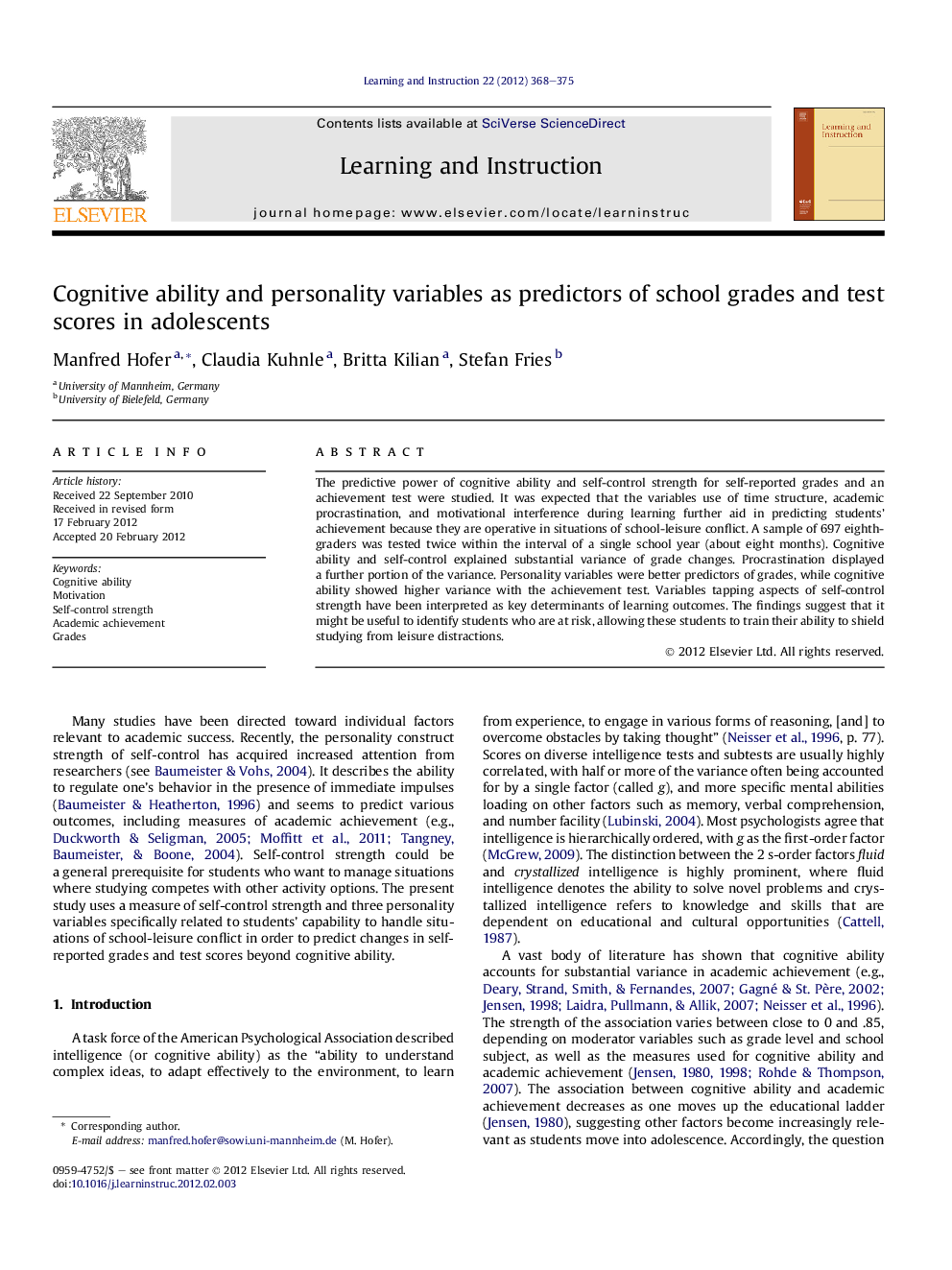| Article ID | Journal | Published Year | Pages | File Type |
|---|---|---|---|---|
| 365706 | Learning and Instruction | 2012 | 8 Pages |
The predictive power of cognitive ability and self-control strength for self-reported grades and an achievement test were studied. It was expected that the variables use of time structure, academic procrastination, and motivational interference during learning further aid in predicting students’ achievement because they are operative in situations of school-leisure conflict. A sample of 697 eighth-graders was tested twice within the interval of a single school year (about eight months). Cognitive ability and self-control explained substantial variance of grade changes. Procrastination displayed a further portion of the variance. Personality variables were better predictors of grades, while cognitive ability showed higher variance with the achievement test. Variables tapping aspects of self-control strength have been interpreted as key determinants of learning outcomes. The findings suggest that it might be useful to identify students who are at risk, allowing these students to train their ability to shield studying from leisure distractions.
► Longitudinal two wave study. ► Cognitive ability and personality measures explained variance of change in achievement. ► Reasoning predicts scores in the math test and self-reported grades. ► Self-control strength and academic procrastination predict grades.
